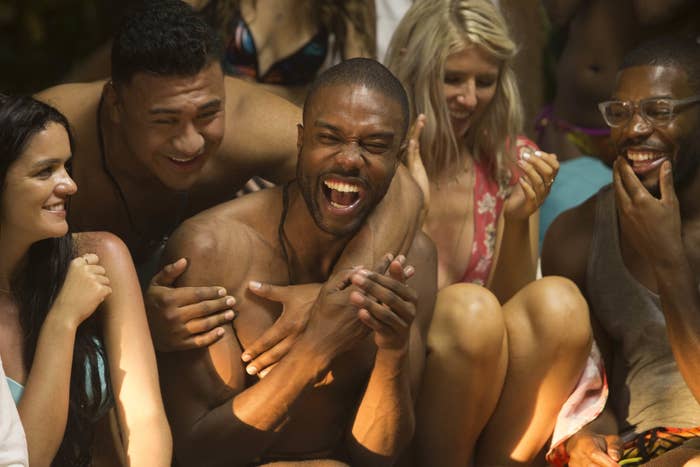
Breaking the fourth wall on reality television is usually a fascinating exercise: It's an opportunity for a show to reveal the true inner thoughts of its cast, which often include complicated feelings about being filmed and its machinations. Being a celebrity on a reality show, and knowing everything is being documented, adds layers to the experience that can't be acknowledged without discussing the show itself, which is generally forbidden. Why does that husband seem like such an asshole? Oh, he hates his marriage being on camera! Did anyone try to help when that cast member seemed like she was actually having a nervous breakdown? Yes, one castmate went to producers and begged them to intervene. The casts of the Real Housewives shows offer particularly satisfying insights during their reunions, when they talk openly about the repercussions of being on the show: for them, for their families.
But the Bachelor franchise tries to keep its secrets much more closely held, as its trappings of romance would be less interesting without the pretense of true love. The shows have only occasionally tripped into the dimension of actual reality in their 15 years of existence, like on the recent season finale of The Bachelorette when Rachel Lindsay watched herself, in front of a live audience, be humiliated by her runner-up Peter Kraus, who told her he wasn't ready to propose yet, causing her to break up with him. When Kraus came onto the stage to talk to Lindsay after they had both watched the painful scene, she was icy and clearly still angry at him. He apologized for having damned her to a "life of mediocrity" should she choose Bryan Abasolo and his pathologically eager-to-marry promises. Lindsay shot back at Kraus that she was "living my best life," and tried to say, without being able to offer specifics, that she had seen cracks in their relationship before the breakup — her voice indicated that she was trying to convince herself about both things. As for how she really feels about Kraus — seemingly furious, and definitely determined to spike his chances to be the Bachelor — that's up to his devoted internet army of zealots to tweet about.
This is all to say that, yes, the Bachelor franchise is capable of offering revealing emotional moments, some of which we've never seen on television before. Which makes its evasive, drawn-out handling of the alleged sexual misconduct (which eventually proved to be unfounded) between two Bachelor in Paradise castmates — Corinne Olympios and DeMario Jackson — even more disappointing and tasteless.

Whether it would have ever been appropriate for Bachelor in Paradise to address this incident is an open question. From its tin-eared first promo for the season, which appeared to exploit the allegations, and a cast photo in which Olympios looks like she can barely stand, it may have been better for Warner Bros., the studio that makes the show for ABC, to realize, There are things we are good at, and it's OK that addressing accusations of sexual misconduct isn't among them. Bachelor in Paradise is silly, and meant to be late-summer froth: Would the audience have faulted it for just starting over and pretending nothing bad had happened? The premiere never revealed what actually did happen on that first day of shooting that caused production to be suspended. If it's possible for us to know less about the events than we did before, the two-episode premiere has achieved that. In an interview with Entertainment Weekly in early August, host Chris Harrison said that not to address it would create an "elephant in the room and then it will taint the entire season." Yet what became clear in watching the premiere is that when production resumed, not to use the days of footage they had already shot would have been impossible, given that a short schedule (usually 18 days, but only 14 this time because of the shutdown) forced the story to move quickly. How else to explain Dean Unglert's immediate attachment to Kristina Schulman, and Lacey Mark's disappearance after her grandfather's death, if they'd scrapped the first few days? Once Warner Bros.' investigation concluded that there was no misconduct and the show began filming again, they had no choice.
And so the show's producers and Warner Bros. were stuck. The result is the worst of both worlds: Bachelor in Paradise — which, again, is meant to be stupid fun — has now been at the center of heated discussions about the very real issue of binge-drinking, consent, and sexual assault, and the historically loaded topic of black men being accused of rape by white women to disastrous ends. In the end, the show managed to trivialize both scourges.
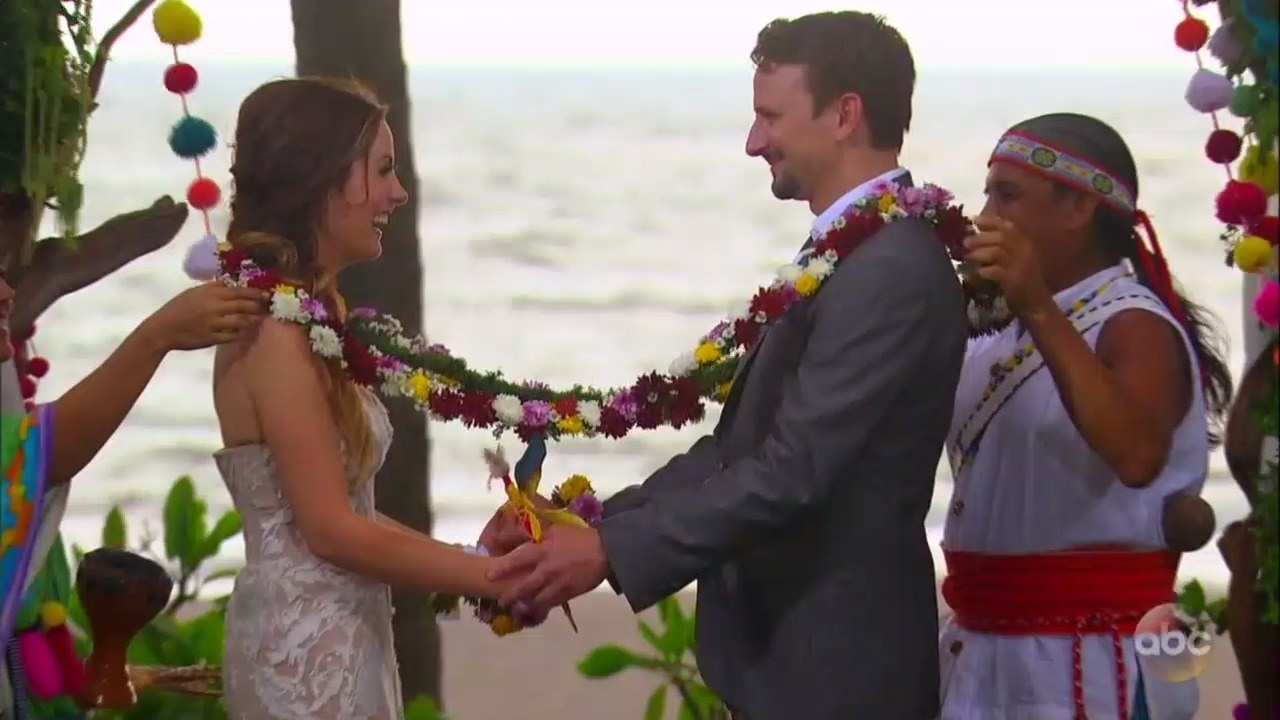
Monday night's episode ended with the crew literally putting their cameras down. And it teased that Tuesday's episode would begin with the cast, having been sent home during the suspension, returning to Sayulita, Mexico, to talk with Harrison. But no: Bachelor in Paradise couldn't help drawing out the story more, showing the wedding of Evan Bass and Carly Waddell, who became engaged during last summer's season of the series. The contrast served as a perfect example of the show's inept handling of the Jackson-Olympios disaster: Let's get through this cheesy wedding of two Bachelor Nation also-rans in order to get to more pablum from Chris Harrison! Yes, there was a shaman ceremony — and the proceedings served to kill the first 45 minutes of the episode.
When the show finally got down to it, the result was like an advertisement for The Bachelor mixed with the worst discussion among college freshmen you've ever seen. As Harrison gathered the remaining cast members (Jackson and Olympios excluded) on a couch to talk, I did wonder what viewers who weren't immersed in this story as it unfolded in the news thought was going on, since the show never actually said in plain English why the shutdown occurred. At the end of Monday's episode, Jackson and Olympios were called away by producers — and from there, everyone just talked about being confused.
Harrison began by talking about the investigation, and asking whether they trusted the conclusion that no one in the cast had done anything wrong. The cast, in turn, gushed about how much they love the producers and the crew, and how they knew dealing with the incident was so hard for them. "It was brutal," Harrison agreed. The cast seemed also to take umbrage at the press coverage — their uniformly anti-media takes were positively Trump-like — that implied the show manipulates them. "I think there's a weird perception that exists out there that we're not in control of ourselves when we're here," said Derek Peth, who, according to Jackson's interview with E! News, got so drunk the first night that he threw up all over himself. "You guys aren't mindless robots?" Harrison asked, to supportive titters.
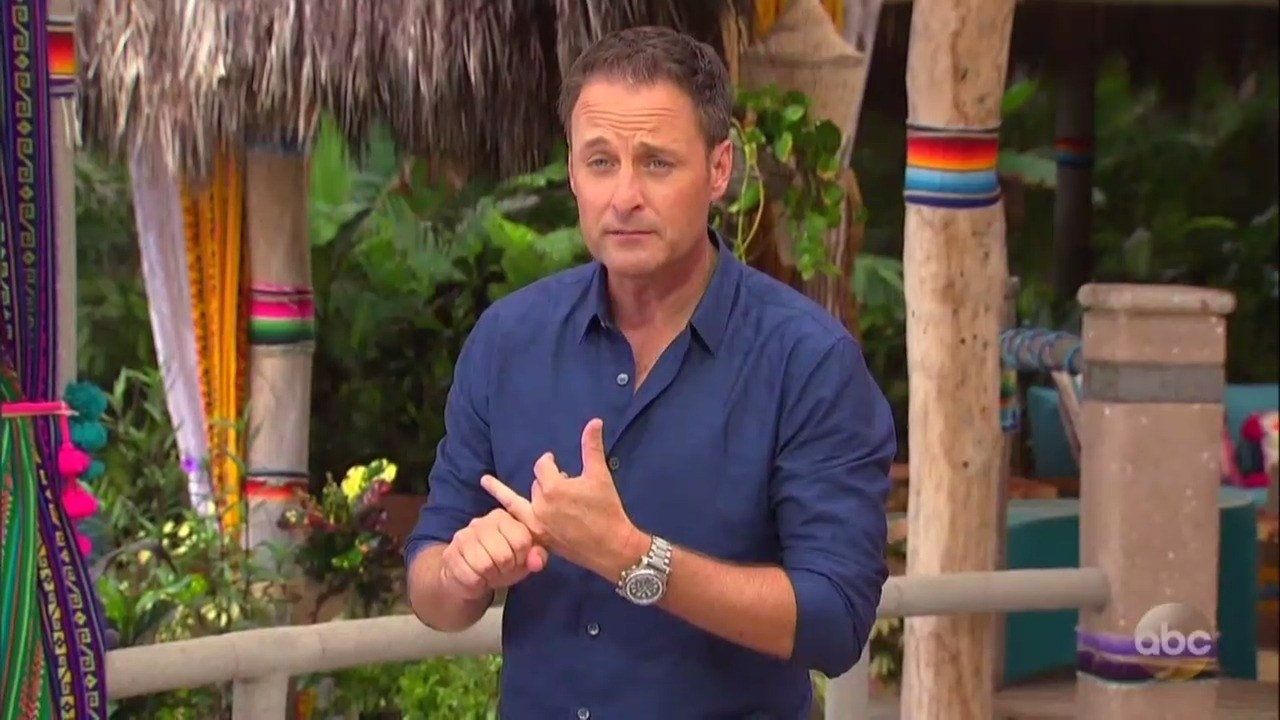
The conversation then turned to how unfair the media coverage and fan response had been to Jackson, and how this allegation will haunt him even though he was absolved. Raven Gates, a white woman from Arkansas who had been vocal on social media during the show's shutdown, said she was "empathetic with DeMario" because of the cultural tendency to blame "African-American men for crimes they didn't commit." Jasmine Goode, a black dancer who, like Gates, also defended Jackson on Twitter and in the press during the suspension, said, "I was just thinking the whole time, like, what if this happened to my brother, you know?"
After the race discussion, the conversation turned to slut-shaming, consent, and the fact that Olympios referred to herself as a "victim" in the statement she released after the shutdown. "Why do you think she did that?" asked Harrison. Danielle Maltby answered: "She wanted to try and save face, was kind of what I took from it." (So much for not slut-shaming.) And this would have been a place to mention, since it's not clear, that two producers filed the complaint questioning whether Olympios and perhaps Jackson were too drunk to consent: It wasn't Olympios's initiative.
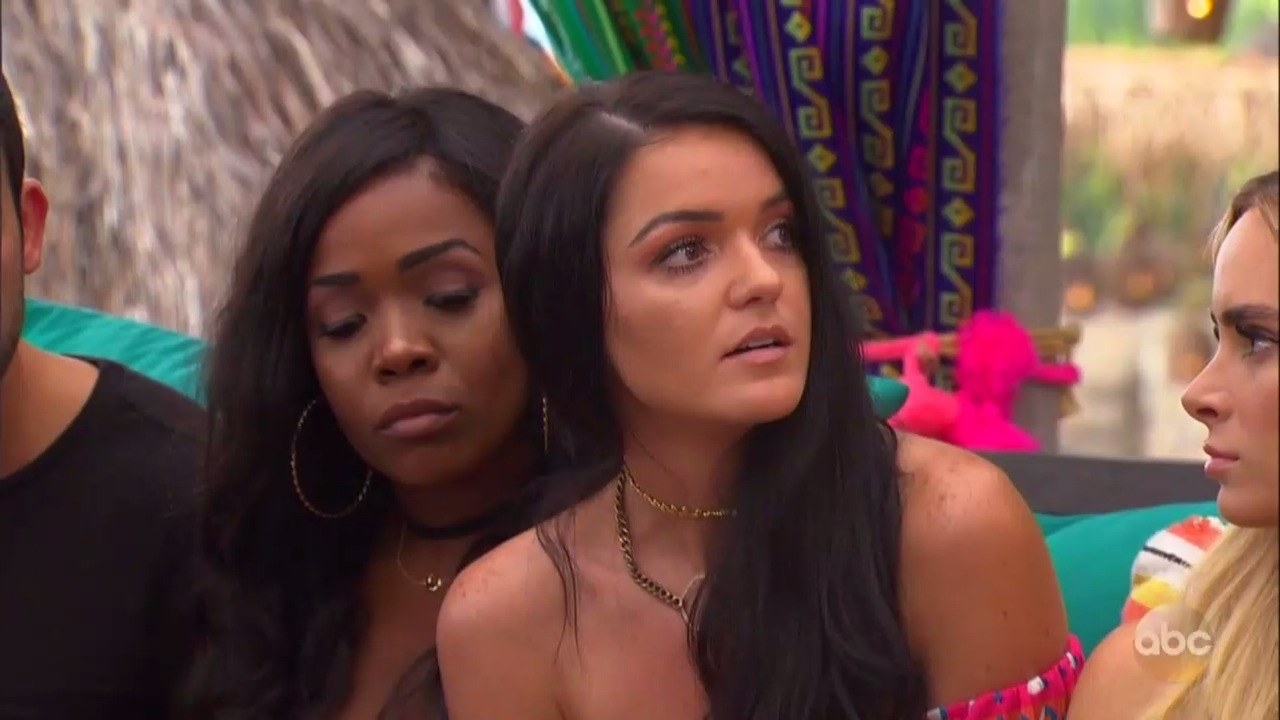
From there, there was a short conversation about the double standards men and women face when it comes to sex. Gates said that when she was in an abusive relationship, which she alluded to during her season on The Bachelor, she was sexually assaulted. "So I hope this situation doesn't deter actual victims from coming forward and really speaking their truth and getting help and asking for help," Gates said. She didn't emphasize the word "actual" in the phrase "actual victims." But this framing insidiously pitted Gates against Olympios, who viewers know to be sexually aggressive and who said she was wasted when she hooked up with Jackson (in her statement, she wrote, "I have little memory of that night").
What followed was a conversation about consent with Harrison in the role of the health teacher. "So if somebody's passed out, unresponsive, can they give consent?" Everyone: No. "If somebody's drunk, can they give consent?" Everyone: Crickets. It's a more complicated question, and the discussion ended with Diggy Moreland saying, "I think we've all been there the next morning, whatever, and you're like, 'Yeah, I probably shouldn't have done this,'" which was met with uncomfortable laughter.
This discussion on #BachelorInParadise about consent shows we are through the looking glass in a next level way.
The whole segment was, by my count, 14 minutes, and ended with Harrison asking the group, one by one like airplane passengers seated in the exit row, whether they wanted to proceed with filming. (Ha!) Then, Harrison officially restarted the show, with talk of eliminations, roses, and bartenders. "After we shut down for more than two weeks, with the power vested in me, I now declare Bachelor in Paradise back open!" The opening credits, set to the song "Almost Paradise" and designed for maximum idiocy, then rolled.
It was all a missed opportunity. I can fantasize about how on Earth 2's Bachelor in Paradise, the cameras would have been rolling the whole time on Olympios's and Jackson's experiences. How we would have seen Elan Gale, an executive producer, pressure Jackson to quit the show, as he told E! News he did. In Jackson's recollection, Gale came to him and said he needed to leave at the rose ceremony or else. "Tell Chris and the crew that you love them, you're thankful, however you're not here for the right reasons," Jackson remembered Gale saying. That would have been, in Bachelor parlance, truly the most dramatic rose ceremony ever.
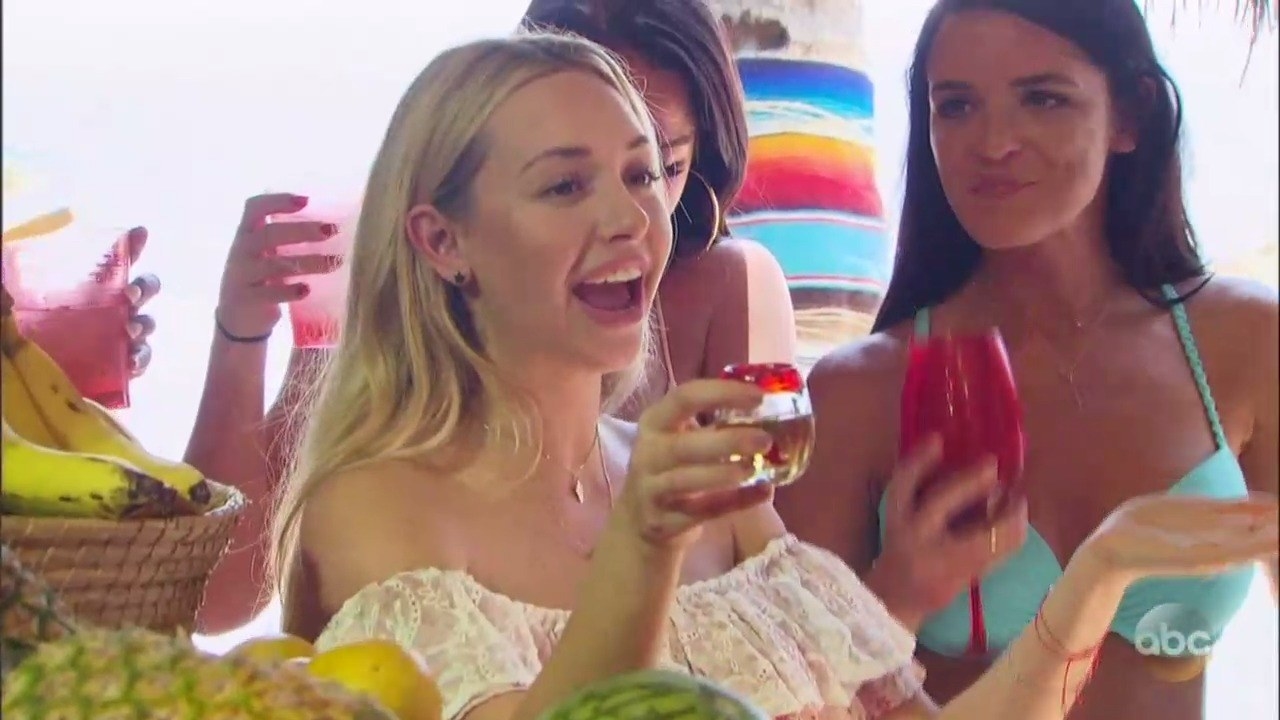
What puzzles me the most, though, is why the audience wasn't shown Harrison or producers laying out the new rules Warner Bros. said it would be implementing after the investigation "to enhance and further ensure the safety and security of all participants." The studio has been shy about saying what the rules are, and Channing Dungey, ABC's entertainment president, deflected questions about them multiple times at a recent press conference.
But they've leaked out anyway: TMZ reported that contestants who wanted to have sex needed to ask a producer's permission before proceeding, and that if either or both of them appeared too drunk to consent, the producer could say no. TMZ also reported that the show was enforcing a two-drink maximum per hour, and that all drugs needed to be dispensed by a nurse. These seem like good rules, and smart, easy ways to make sure things don't get out of hand! Why make it seem sinister — or in Harrison's double-speak to The Hollywood Reporter, "We've really learned from our mistakes, but there really weren't any major mistakes made"? Unless, of course, you're afraid that the rules tacitly admit that some of the cast members get blackout drunk, perhaps mix drugs and alcohol, and don't know what they're doing.
Oh. Maybe that's why.
